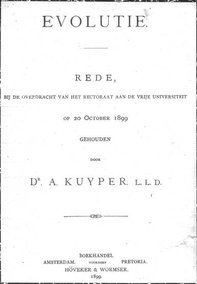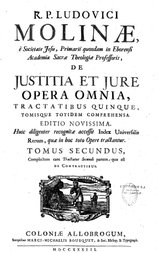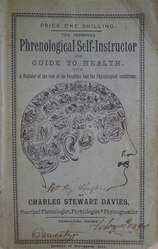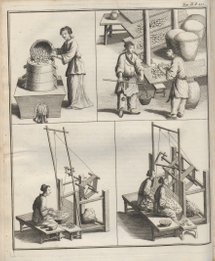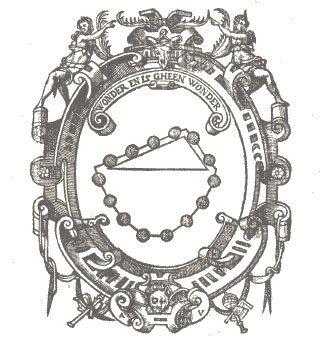News & Agenda 2014-2015
Omdat de hoofdspreker van het aankomende seminar zich heeft teruggetrokken, zijn wij helaas genoodzaakt onderstaande bijeenkomst te annuleren.
STEVIN SEMINAR #9
in samenwerking met UvA-Platform for the History of Humanities and Sciences (HHS)
De Ontdekkers van de Hemel
Er is iets bijzonders aan de hand met de sterrenkunde in Nederland. Ondanks zijn bewolkte klimaat en dichte bebouwing is Nederland op astronomisch gebied een grootmacht, en dat al een eeuw lang, met kopstukken als Kapteyn, Minnaert en Oort. Hoe komt dat? Wie waren die mensen? En waarom werd juist de Nederlandse sterrenkunde zo succesvol?
Het seminar vindt plaats naar aanleiding van het nieuwe boek van wetenschapshistoricus David Baneke, verbonden aan het Descartes Centrum, over de Nederlandse sterrenkunde in de twintigste eeuw.
De middag staat onder voorzitterschap van Jeroen van Dongen (UvA-HHS) en zal behalve een presentatie van David Baneke bestaan uit reflecties vanuit sterrenkundig en historisch perspectief.
De reflectie vanuit de sterrenkunde zal worden verzorgd door emeritus hoogleraar astrofysica Ed van den Heuvel, die in 1995 de Spinozaprijs won. De historische reflectie wordt gegeven door Abel Streefland, die aan een proefschrift werkt over Jaap Kistemaker en de Nederlandse uraniumverrijking na 1945.
Datum: 10 juni 2015, 15.30-17.00 uur
Plaats: Vrije Universiteit, W&N gebouw, S 631
Na afloop borrel in The Basket
De ontdekkers van de hemel. De Nederlandse sterrenkunde in de twintigste eeuw
In De ontdekkers van de hemel analyseert David Baneke de ontwikkeling van de sterrenkunde in Nederland vanaf de negentiende eeuw tot nu. Hij beschrijft wat er in verschillende periodes van wetenschap werd verwacht, wat de dromen en ambities waren, en welke rol de overheid speelde.
Het verhaal van de sterrenkunde is verweven met de politieke, economische en culturele geschiedenis. Wereldoorlogen, wederopbouw en de koude oorlog speelden een rol, net als het idealisme van de jaren zeventig, het marktdenken dat daarop volgde, en de internationale opstelling van Nederland als ambitieus maar klein land.
Uiteindelijk probeert De ontdekkers van de hemel een antwoord te geven op de vraag waarom we überhaupt aan sterrenkunde doen.
David Baneke studeerde geschiedenis en werkte als wetenschapshistoricus aan verschillende Nederlandse universiteiten en op het Smithsonian Air and Space Museum in Washington. In 2008 publiceerde hij Synthetisch denken: natuurwetenschappers over hun rol in een moderne maatschappij, 1900-1940.
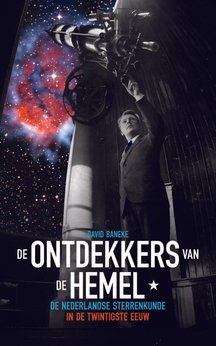
* * *
Vidi Beurs voor Lid Stevin Centrum, de Filosoof Jeroen de Ridder
Democratie wijzer
De filosoof Jeroen de Ridder gaat onderzoeken of liberale democratieën goed zijn in het produceren van kennis. Hij gaat met zijn collega’s na hoe vrij en open debat tussen diverse standpunten idealiter zou moeten leiden tot kennis. Vervolgens onderzoeken ze of dit ideaal stand kan houden wanneer je verdisconteert dat burgers diepgaande meningsverschillen hebben en slechts beperkt rationeel zijn.
Next Stevin Centre Symposium
(in Dutch) organized together with the
Platform of the History of Humanities and Sciences (HHS) of the University of Amsterdam:
10 juni, 2015. 15:30 – 17:00 uur.
Zaal: VU, WN (Wis-en Natuurkundegebouw) S 631
Rond het boek van
David Baneke: De Ontdekkers van de Hemel.
Meer informatie later.
INVITATION
Ad hoc-ness: a historico-philosophical analysis
LECTURE by Samuel Schindler (Aarhus University, Denmark)
COMMENTARIES by Kelvin McQueen and Henk de Regt (VU Amsterdam)
13 May 2015, 15.00-17.00 hrs.
VU Main Building, De Boelelaan 1015, Room 05A-02
Afterwards drinks in The Basket
Organized by
Stevin Centre for the History of Science and Humanities
& Department of Philosophy, Faculty of Humanities, VU Amsterdam
ABSTRACT
What do scientists precisely mean when they level ad hoc charges against a hypothesis or a theory? Although an answer to this question appears to be straightforward at first sight, a closer look at various historical cases reveals the need for a more thorough analysis. In this talk I will review some of the extant proposals and present my own account of the meaning of ad hoc-ness. In the process, I will discuss not only standard examples of ad hoc hypotheses, such as the Lorentz-FitzGerald contraction hypothesis and epicycles in Ptolemaic astronomy, but also more recent ones such as the Higgs mechanism and aspects of the cosmological debate between steady state and big bang theorists in the 1950s-60s.
Samuel Schindler is Associate Professor at the Centre for Science Studies, Aarhus University, Denmark. http://www.samuelschindler.org/
Kelvin McQueen is Postdoctoral Researcher at the Department of Philosophy, VU University Amsterdam. http://kelvinmcqueen.com/
Henk de Regt is Professor at the Department of Philosophy, VU University Amsterdam. https://vu-nl.academia.edu/HenkdeRegt
------------------------------------------------------------------
This meeting has been cancelled because of the illness of the speaker.
STEVIN CENTRE SEMINAR ON APRIL 8, 2015
Date : 8 April 2015
Time: 16:00 – 17:15 hr
Room: WN-S631
Spreker: Wouter Goris (Department of Philosophy, VU University Amsterdam)
Afterwards drinks in the Basket
‘Our’ Common Knowledge. Epistemic Constellations and the A priori in the Early Stoa, in Arabic Philosophy, and in Medieval Latin Philosophy.
If Kant, in a famous passage in the first Critique (A166-7), refers to Epicurus to connect his anticipation of perception with the latter’s notion of prolēpsis, this prolēpsis, meanwhile comfortably embedded in the opposition between the empirical and the transcendental, is defined in contradistinction to one of its main characteristics in Epicureanism and the Early Stoa: its empirical character. Between Epicurus and Kant, the history of the a priori is enacted. In this contribution, we present some stages of this history. Instead of analyzing a continuity, however, we set out to describe the way different epistemic constellations put into operation like formal structures. In the Early Stoa, in Arabic Philosophy, and in Medieval Latin Philosophy, we encounter the idea of natural conceptions common to all mankind. In each of these traditions, this idea is put forward to provide an answer to the Meno-paradox. And in each of these traditions, finally, we can observe a specific tension between the empirical and the transcendental dimensions of these natural conceptions. Judged from the history of philosophy, we are confronted here with the question of reason, the inalienable associate of human nature, and the need to allow for anthropological constants. Judged from the variety of epistemic constellation, however, the question is rather how these discourses create the illusion of continuity.
Wouter Goris is professor of the history of ancient, patristic and medieval philosophy at the VU University
STEVIN CENTRE SEMINAR ON MARCH 4, 2015
SEMINAR van het Stevin Centre for History of Science and Humanities
Spreker: Gijsbert van den Brink (VU Faculteit der Godgeleerdheid)
Datum and tijd: 4 Maart 2015, 16.00-17.15 hr.
Locatie: VU Science Building, De Boelelaan 1085, Zaal F 612
Daarna borrel in The Basket
Kuyper en Warfield over evolutie
Het werk van VU-oprichter Abraham Kuyper beleeft momenteel een ware revival in de Verenigde Staten. Met name door evangelicale theologen wordt Kuypers hulp en autoriteit ingeroepen voor de oplossing van zeer uiteenlopende hedendaagse samenlevingsvragen. De vraag is nu of Kuyper ook zou kunnen helpen bij het overbruggen van de vaak grote kloof tussen geloof en wetenschap, tussen old time religion en academie? Om hier een antwoord op te vinden, herlezen we de rectorale rede over Evolutie die Kuyper op de VU hield in oktober 1899. Dat was één jaar nadat hij te Princeton zijn fameuze Stone-lectures had gehouden, op uitnodiging van zijn gastheer en collega daar: Benjamin B. Warfield. Mijn hypothese is nu dat Kuyper in zijn rede weliswaar op retorisch fraaie en inhoudelijk goed geïnformeerde wijze het evolutiedenken kritiseert, maar op het beslissend punt invloed vertoont van Warfields veel opener benadering van de evolutietheorie. Recent onderzoek van David Livingstone e.a. heeft laten zien dat de reacties van religieuze gemeenschappen op Darwins evolutietheorie sterk gekleurd werden door ‘the particulars of place’. In deze lezing zal dit nagegaan worden met betrekking tot Amsterdam en Princeton – Kuyper en Warfield.
Gijsbert van den Brink is URC-hoogleraar Theologie en wetenschap aan de Faculteit der Godgeleerdheid.
All interested people welcome!
NEXT STEVIN MEETINGs
April 8: Lecture from the Group of Historical Philosophy, Room WN S 631
May13 : Samuel Schindler (Aarhus University): (15-17 uur), in cooperation with Department of Philosphy, Room HG 05A02
June 10: WN S 631
More information later.
ANNOUNCEMENTS OF STEVIN CENTRE SEMINAR ON FEBRUARY 4, AND OF GLOBAL HISTORY SEMINAR ON FEBRUARY 26, 2015
THE GLOBAL HISTORY SEMINAR HAS BEEN CANCELLED
MEETING of the Stevin Centre for History of Science and Humanities
Speaker: Niels de Bruijn (VU Faculty of Law)
Date and time: 4 February 2015, 16.00-17.15 hr.
Location: VU Science Building, De Boelelaan 1085, Room F 612
Afterwards drinks in The Basket
Theologians and Recalcitrant Horses. How Early-Modern Scholasticism Shaped 16th-Century Castilian Sales Law
In the year 1571, Antonio de la Vega Sanz, proudly seated on his recently acquired horse, rode toward Toledos' plaza mayor to royally entertain Queen Anna of Austria. However, to Sanz' dismay, his latest purchase 'made a lot of trouble and kicked him twice and it was necessary for him to leave the said square for all the hubbub he caused on it', so a witness later told. After this embarrassing scene, Sanz channeled his frustrations into a suit against Pedro de Hortiz and his son who had sold him the indomitable horse and claimed compensation for all the damages he had incurred. This case is one of many about a defect in a thing bought which made it to the Royal Chancery of Valladolid, Castilian's highest appellate court at the time, and which can still be consulted today in the Chancery's archives. Yet, the files of these lawsuits do not inform us about the legal sources which were used to come to a decision. Discussing 16th-century books on Castilian legal doctrine, theological treatises and case law of the Royal Chancery, this presentation attempts to illustrate by which principles and norms Castilian legal scholars and practitioners led themselves be guided in their pleas and judgments in cases such as Sanz'. Particular attention will be paid to the role early-modern scholastics played in the treatment of such down-to-earth issues as sales of recalcitrant horses.
Niels de Bruijn is a Ph.D-Candidate in Legal History at the Vrije Universiteit, Amsterdam
All interested people welcome!
NEXT STEVIN MEETINGS
March 4: Gijsbert van den Brink (History of Theology). The meeting will be preceded by a Stevin Member Consultation Meeting from 15:00 to 15:50 hr.
April 8: Lecture from the Group of Historical Philosophy.
More information later.
THE GLOBAL HISTORY SEMINAR HAS BEEN CANCELLED
SEMINAR GLOBAL HISTORY
About Social Darwinism and Chinese Eugenics
Speaker: Juliette Chung (National Tsing Hua University, Institute of History)
Date and Time: VU February 26, 2015; 15:00 hr.
Location: Main Building VU, 9a05
Better Science and Better Race
This lecture explores the variegated roles played by racial, eugenic, and Social Darwinist discourse in China over roughly the last century. Using Japan as a parallel for comparison, it analyzes the introduction of the term “eugenics” into Japanese and Chinese. It then locates the deployment of eugenics and Social Darwinism as counterimperial discourse in East Asia. It offers a brief history of eugenics thinking in China across the twentieth century, focusing on the Chinese eugenicist Pan Guangdan, who used race as a category of analysis yet without any sense of hierarchy. He was critically aware of the scientific basis of eugenics and helped craft the study of eugenics in China, from biology to sociology, from economics to ethnology.
MEETING of the Stevin Centre for History of Science and Humanities
Speaker: Fenneke Sysling
Date and time: 3 December 2014, 16.00-17.15 uur
Location: Science Building, VU, De Boelelaan 1085, Room G 076
Afterwards drinks in The Basket
Self-knowledge through numbers. Self-instructors in phrenology as self-tracking technologies, 1850-1900
Today it has become popular to use digital technology to acquire data on daily life: on sleep patterns, calorie intake or the number of steps taken for example. These data are supposed to give people a more accurate and objective sense of themselves which can help implement changes, for example to live a healthier life. The technologies to make this possible are revolutionary but the use of quantification to study and understand the individual body is not new. This paper looks at the late nineteenth century example of phrenology. Phrenologists believed that the human mind could be categorized in different mental faculties, with each particular faculty represented in a different area of the brain. On the head the development of these areas could be studied by analyzing the bumps. These bumps however were not only studied by (semi-)professional phrenologists but also by individuals who applied phrenology to themselves and to others, mostly in the U.S. and England. This paper shows how with the help of phrenological ‘Self-Instructors’ individuals in this historical period too transformed their own self-understanding and worked towards self-improvement by engaging with techniques of quantification.
Fenneke Sysling is a lecturer at VU University, specialized in the history of science, race and colonialism. She wrote her PhD thesis on the history of physical anthropology in the Netherlands Indies.
All interested people wellcome!
NEXT MEETINGS
February 4, Niels de Bruijn (History of Law) will present his research and March 4 Gijsbert van den Brink (History of Theology). More information later.
MEETING of the Stevin Centre for History of Science and Humanities
Speaker: Azadeh Achbari
Date and time: 5 November 2014, 16.00-17.15 uur
Location: Science Building, VU, De Boelelaan 1085, Room G 076
Afterwards drinks in The Basket
Troubled Waters, Clearing Skies: boundary disputes and the struggle for authority in 19th-century meteorology
Understanding weather conditions on land and at sea became a matter of prime concern and gained increasing relevance in the 19th-century globalizing world of colonial expansion and maritime trade. As the weather knew no boundaries, neither national, nor between land and sea, knowing its phenomena was a shared interest. Despite an increasing awareness of the need for international cooperation, however, 19th-century meteorology was a highly contested field. Naval officers and academic men of science struggled for authority in the emerging science. Practical concerns clashed with scientific ambitions when the primacy of marine or land-based observations was discussed. The growing practice of weather forecasts and storm warnings added a new dimension to the dispute as their scientific basis was severely questioned by academic elites. Meteorological theories abounded, but who was to be trusted as an expert? What meteorological standards should be met? While the British Royal Society sought to bend these issues to suit its concerns, it was the Dutch professor Buys Ballot who, mainly through his networking abilities, got the upper hand in most of these battles. In 1868 his rule of thumb was transformed into a universal law of nature, internationally referred to as "Buys Ballot’s Law". Five years later his leading position was manifest in his appointment as president of the international meteorological conference held in Vienna.
Azadeh Achbari is a PhD student at the VU University Amsterdam. She has a Master Degree in European Studies of the University of Amsterdam. Her research was funded by NWO and Fulbright.
All interested people wellcome!
NEXT MEETING
December 3, Fenneke Sysling will present her research. More information later.
MEETING of the Stevin Centre for History of Science and Humanities
(in Dutch)
Spreker: Frasie Hertroijs
Datum en tijd: 1 oktober 2014, 16.00-17.15 uur
Lokatie: W&N Gebouw, zaal F612
Na afloop borrel in The Basket
Hoe kennis van China naar Europa kwam: de rol van jezuïeten en VOC-dienaren, ca. 1680-1795
Europese geleerden uit de achttiende eeuw waren onder de indruk van de Chinese beschaving, die toen volop in ontwikkeling was. Het verzamelen van kennis over deze beschaving was echter niet zo gemakkelijk. De Chinese keizers lieten alleen kleine groepen Europese missionarissen en handelaren toe in hun rijk, en hielden streng toezicht op wat deze buitenlanders naar Europa stuurden. De Jezuïetenorde en de VOC vormden lange tijd de informatiebron voor Europa. Vervolging en concurrentie in de loop van de achttiende eeuw leidde ertoe dat hun positie veranderde. Niettemin bleven zij bijdragen aan de circulatie van kennis, waarin persoonlijke relaties en betrekkingen met nationale academies van cruciaal belang waren.
Frasie Hertroijs (1980) verdedigde dit voorjaar aan de Vrije Universiteit Amsterdam haar proefschrift. Haar onderzoek werd gefinancierd door de Stichting Professor van Winter Fonds en vond onder meer plaats in archieven in Parijs en Rome
All interested people wellcome!

.jpg?etag=%222c95-5316427d%22&sourceContentType=image%2Fjpeg&ignoreAspectRatio&resize=117%2B67&extract=0%2B0%2B117%2B67&quality=85)
